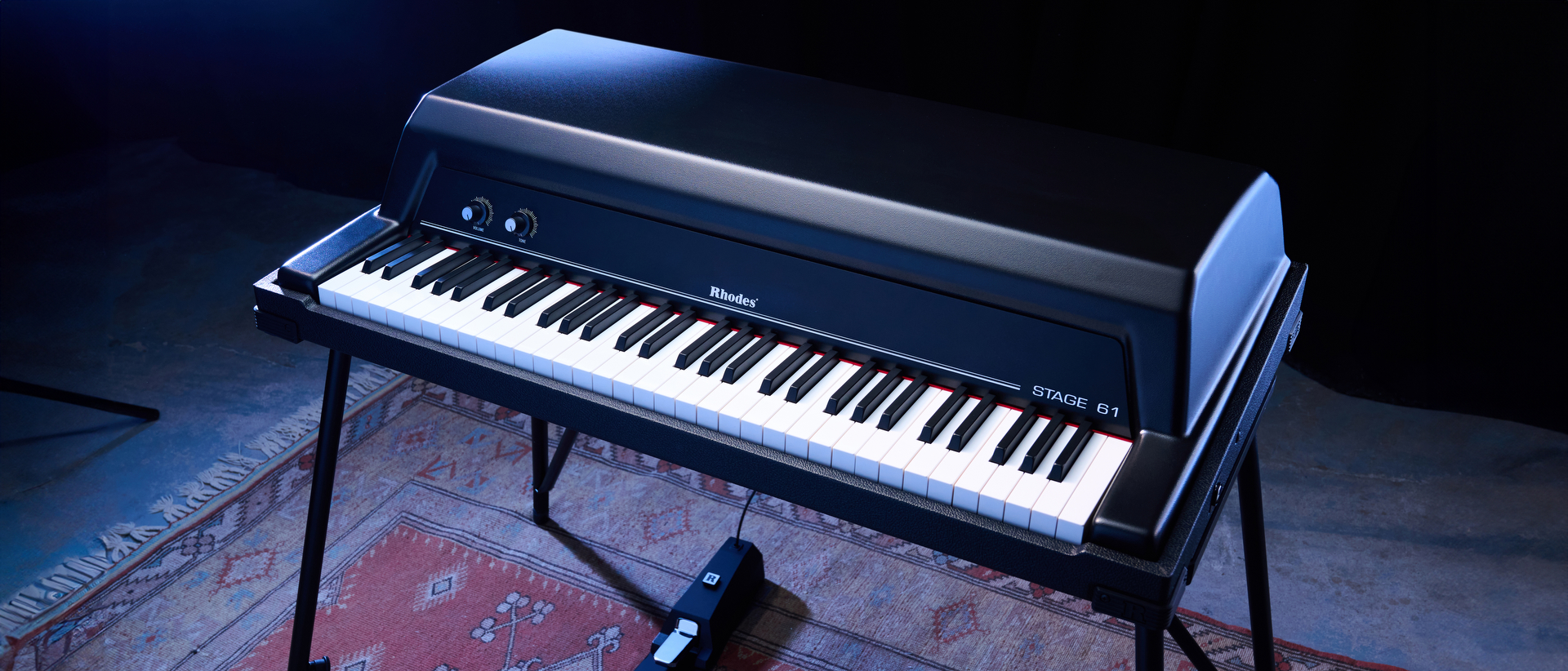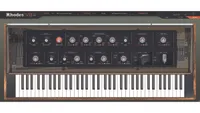MusicRadar Verdict
The Rhodes Stage 61 is nothing short of perfection! A classic Stage Rhodes, in every sense, which plays like a dream and sounds every bit as classy as its timeless heritage would suggest. The opportunity for creativity, through the addition of effects, is pretty limitless!
Pros
- +
Beautifully constructed, brand new Rhodes, with a sound to match.
- +
The keybed is meticulously crafted and incredibly engaging to play.
- +
With 61 notes, it’s quite a bit lighter than larger and older alternatives.
- +
The pedal has been redesigned and is now completely reliable!
Cons
- -
No flightcase lid, so you may need a case if you’re intending to gig with it.
- -
Some people may require more than the 61 keys/five octaves.
MusicRadar's got your back
What is it?
There is a lot of love for the Rhodes electric piano, which is hardly a surprise considering its secure position in the history of contemporary music. Originally designed by Harold Rhodes, the instrument as we know it today first appeared in the early ’70s, designed as a form of piano that could compete with other amplified instruments in a band. It adopted guitar-like technology, to generate a signal which could be easily amplified.
The Rhodes is referred to as an electro-mechanical tine piano, because the keyboard mechanism is not entirely dissimilar to an acoustic piano. Each key mechanically triggers a hammer which strikes a tine, instead of the strings found on an acoustic piano. The tine vibrates, oscillating across a pick-up, much like those found on an electric guitar. An escapement, made up of tone bars, helps to maintain sustain and tone, resulting in a beautifully rich and lush tone. This sound has become synonymous with the ’70s and beyond, forever linked with artists such as Stevie Wonder, Chick Corea and Herbie Hancock.
But this sound is having a renaissance, spurned on by the release of the Rhodes Mk8 model, released at the end of 2021. The Mk8 brought many benefits to the Rhodes platform, but with a premium price tag. With the release of the Stage 61, the quality and feel is maintained, but in a streamlined and arguably more traditional Rhodes Stage format, with a very attractive price.
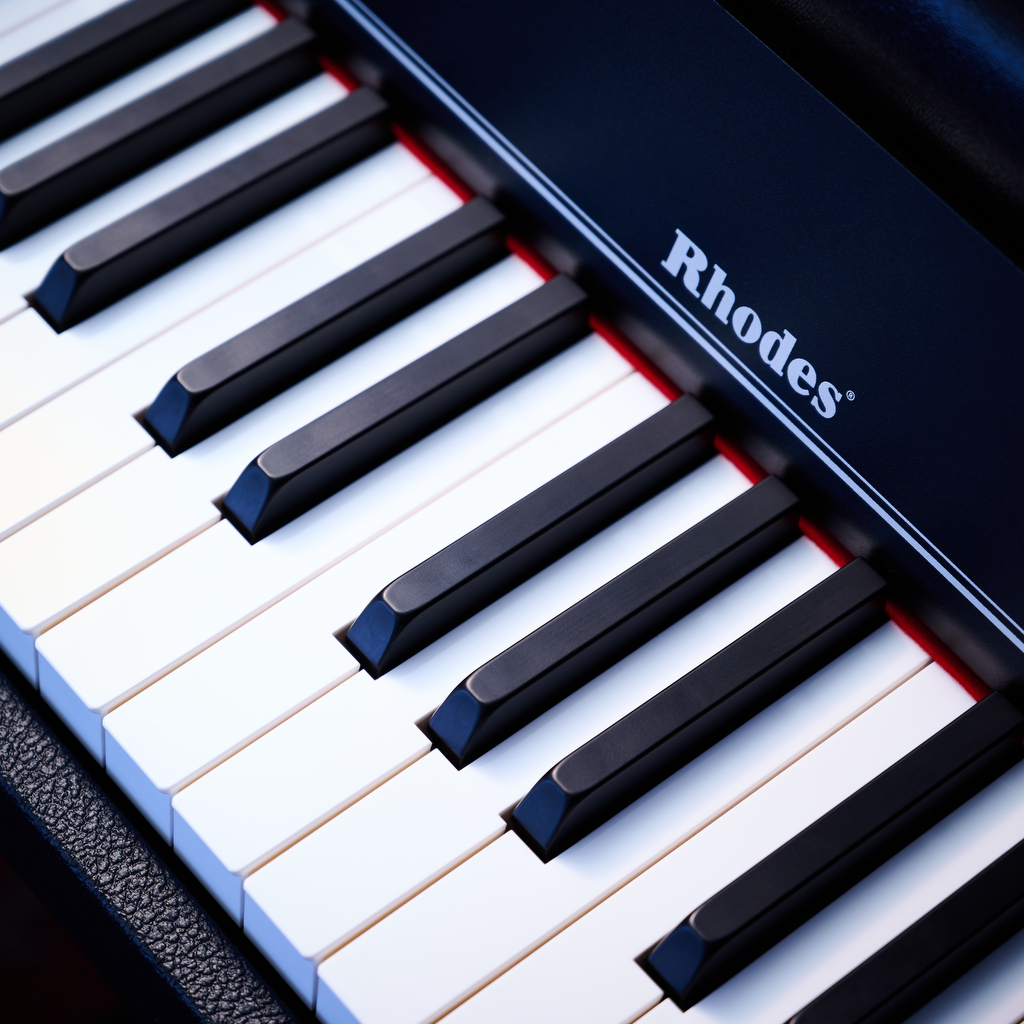
Construct
The Stage 61 looks and feels immediately familiar; a hand-made wooden tray, covered in a black tolex, forms the base of the unit, with plastic buffers on each corner, recalling a traditional rugged Stage look. The keybed sits in front of a long metal panel, which adorns the Rhodes logo and some elegant go-faster striping. On the left-hand side of the panel, two rotary pots provide control of volume and tone, although the tone control could just as easily be described as Bass Boost (a hark back to earlier models!)
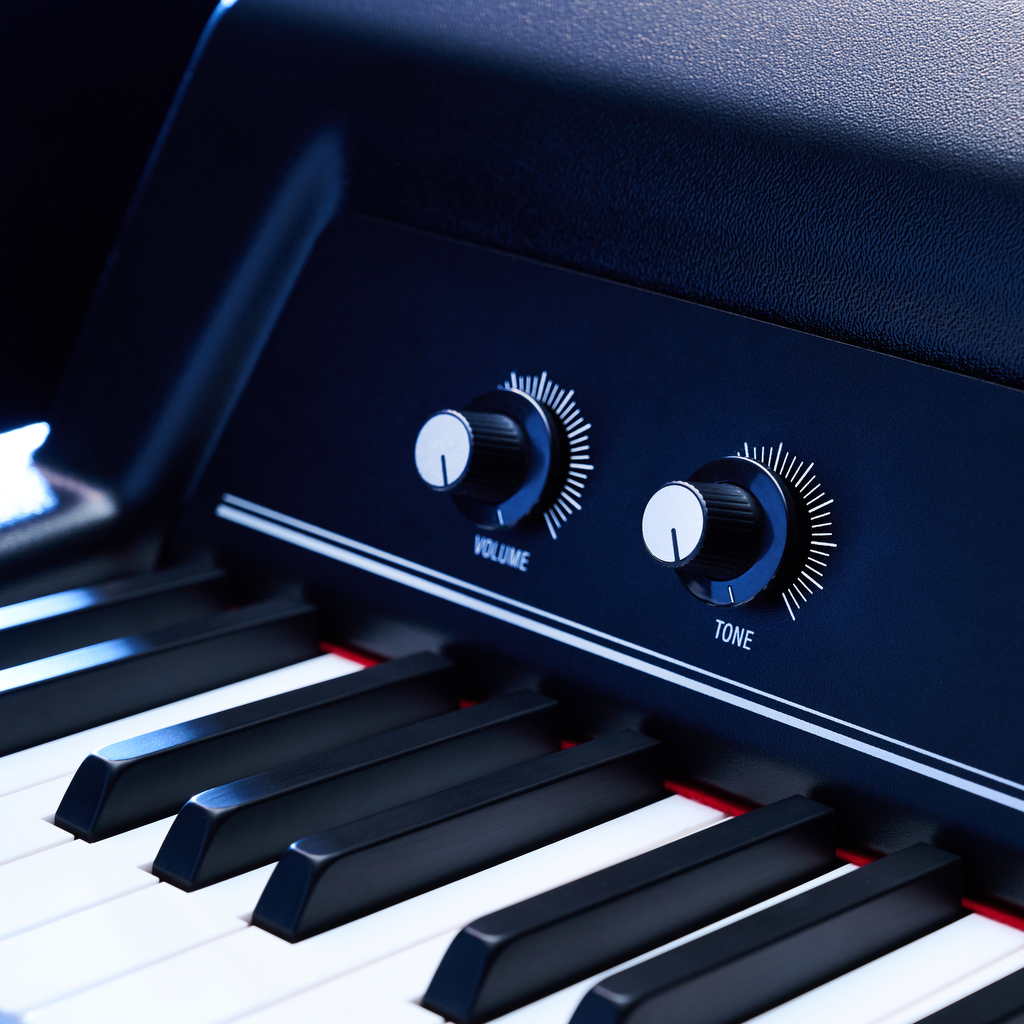
On the left-hand side of the base, a mono 1/4” jack output provides a single connection, to head off to some form of amplifier or preamp. On the right, there is a fitted USB socket; although dormant on our review model, we have been told by Rhodes that a MIDI retrofit kit will shortly be available, which will turn your Stage 61 into a MIDI controller keyboard, complete with polyphonic aftertouch. Being an electro-mechanical instrument, the MIDI is output only.
Completing the sleek design of the Stage 61, a fitted ABS plastic lid is secured with two screws at the back, with clips on either side. Unlike vintage Stage models, there is no flight case lid, but at least the ABS top is secure, so it won’t fall off when moving around. It’s also sturdy enough to support a synth, such as a Minimoog.
We can’t say that the Stage 61 is a light keyboard. With all that wood and mechanics, it’s quite heavy at 26kg, but it is far lighter than any vintage model, and due to its relative size, easy enough to pick up and move.
Want all the hottest music and gear news, reviews, deals, features and more, direct to your inbox? Sign up here.
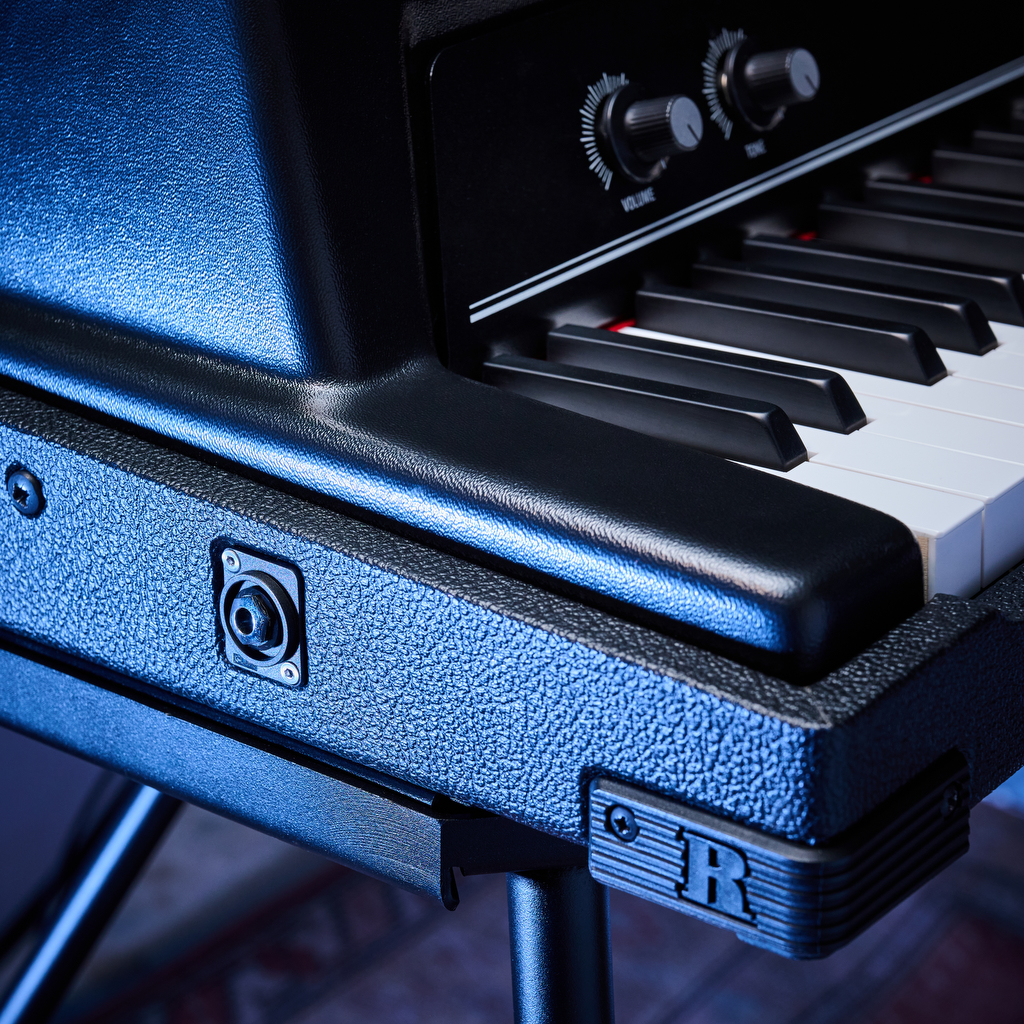
Included within the package is a newly designed Rhodes pedal. The ‘rod’ system is now replaced with a beautiful new pedal that employs a flexible cable. This new design is very secure, using a two prong attack to ensure that it does not come undone halfway through your playing experience! Never a good look on a gig!
An optional stand is also available, which universally fits both the Stage 61 and Mk8. This completes the 61's look beautifully, but will be far more time-consuming if gigging, as it requires four legs and braces to be screwed together, before placing the Rhodes on top. A good quality, double-braced stand will do an equally good job of supporting the instrument, but we can’t deny that the look of the Rhodes stand is likely to be the dealbreaker, if using at home or permanently in a studio.
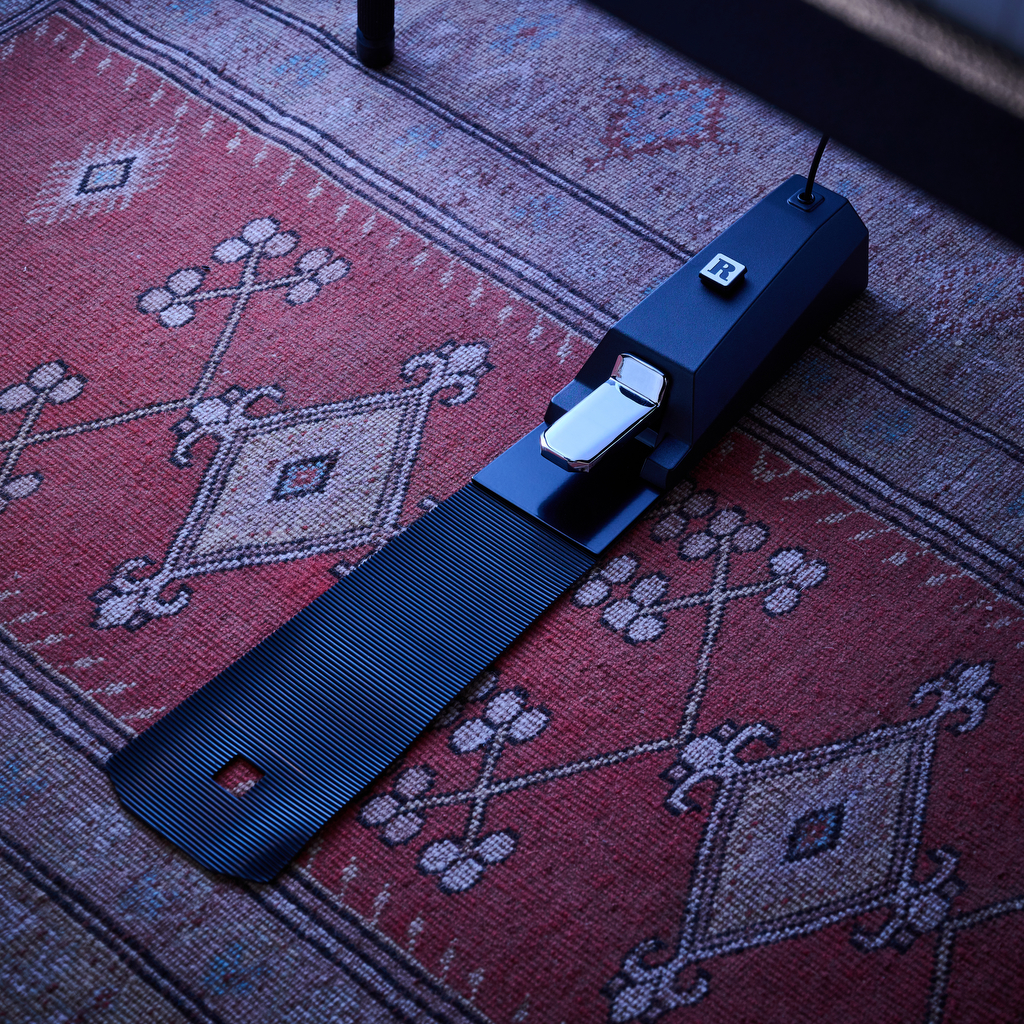
Performance
As any keyboard player will attest, your relationship with an instrument begins with the keyboard action itself, and in this regard, Rhodes has not held back. The keybed is assembled by hand, using premium components; the keys are produced by Kluge Klaviaturen, who produces the keys for Steinway, debatably the most highly-regarded piano manufacturer in the world.
When we looked under the hood of the Rhodes, we could see the wooden makeup of the key, with Kluge stamped down the side. Not only are the keys an organic thing-of-beauty, but at the playing level, the weighting and action is nothing short of sublime. The keys are well balanced, providing a degree of resistance, but with a very fast return. Perfect for when you find yourself playing fast vamps or melodic phrases.
An important part of tone creation and sustain are the components that make up the tine and tone escapement bars. Rhodes prides itself on using top-notch materials, which in many cases are manufactured locally to its factory in Leeds, UK. The hammers and tips are designed to be exceptionally hard wearing, with damper combs that are apparently aerospace-grade. You feel this quality every time you sit down to play. While this instrument is arguably at the budget end of the Rhodes lineup, there is nothing budget about the playing experience.
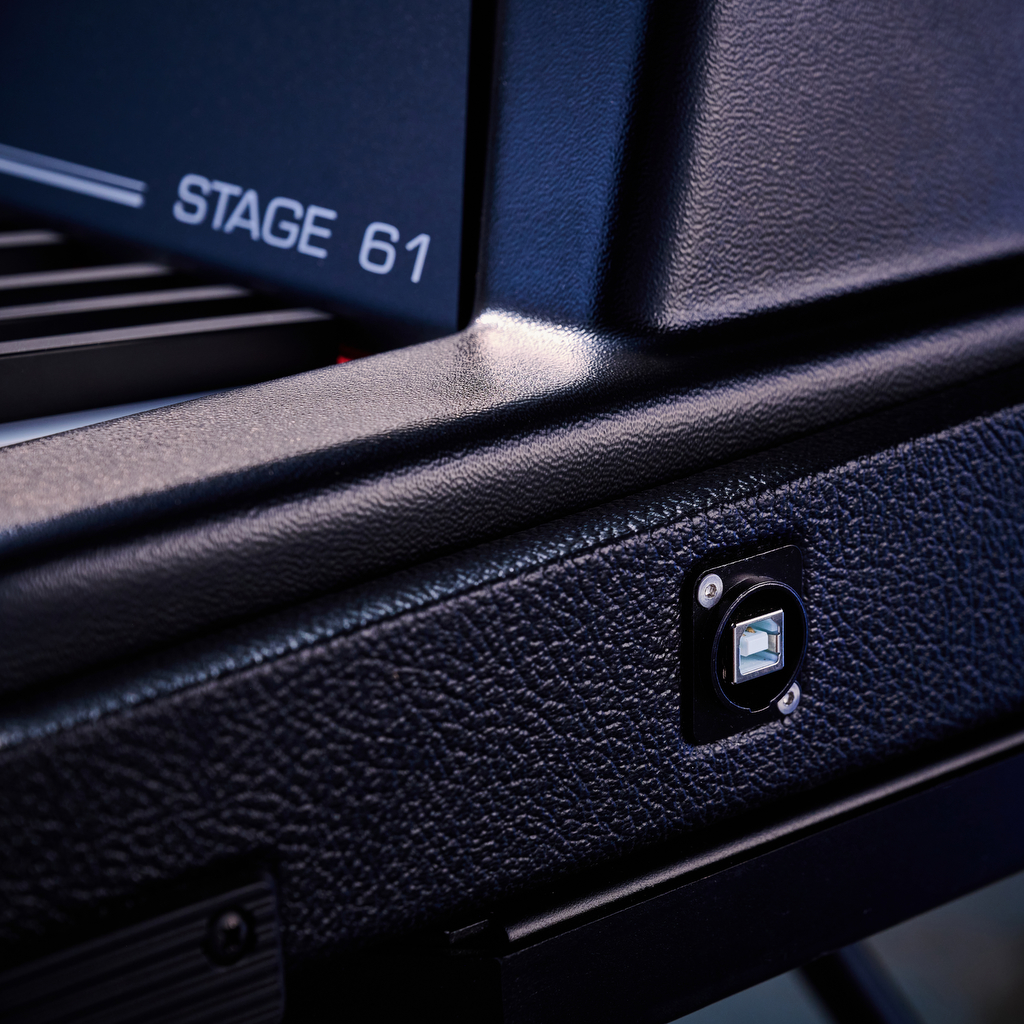
Getting amped
Given the passive nature of this instrument, we were very interested to see how it would engage with other contemporary hardware. Our first test involved a DI connection, straight into a Universal Audio Apollo interface.
Unsurprisingly, there was a need to increase the input gain considerably, to generate enough signal to work with, but the resulting tone was as clear as day! With no sense of hiss or instrument noise, we were left free to apply all manner of effects from within our DAW.
The instrument tone provides a real depth, but with enormous clarity in the bell-like tones, created by the tines. Placing our volume pot at full, the Stage 61 tone control proved to be particularly engaging. When increased to its upper echelons, the bass really comes alive, through presence and a level of grittiness.
We have never had the opportunity to try a brand-new vintage Rhodes, but one can only imagine that this is as good as it can get – modern detailing, building upon a vintage design.
Tradition dictates that a Rhodes will often sound fantastic through a Fender Twin or Roland Jazz chorus amplifier, but we elected to try the Stage 61 through a more conventional keyboard amp.
It sounds pretty amazing, not entirely different from the DI signal, but with a bolstering of lower-mids which you often find with a keyboard amp.
We also tried adding pedals, such as the ubiquitous Small Stone Phaser and Roland Space Echo; being the hardware domain, amazing sounds simply fell out of the Rhodes, but with the control that you only find with conventional hardware.
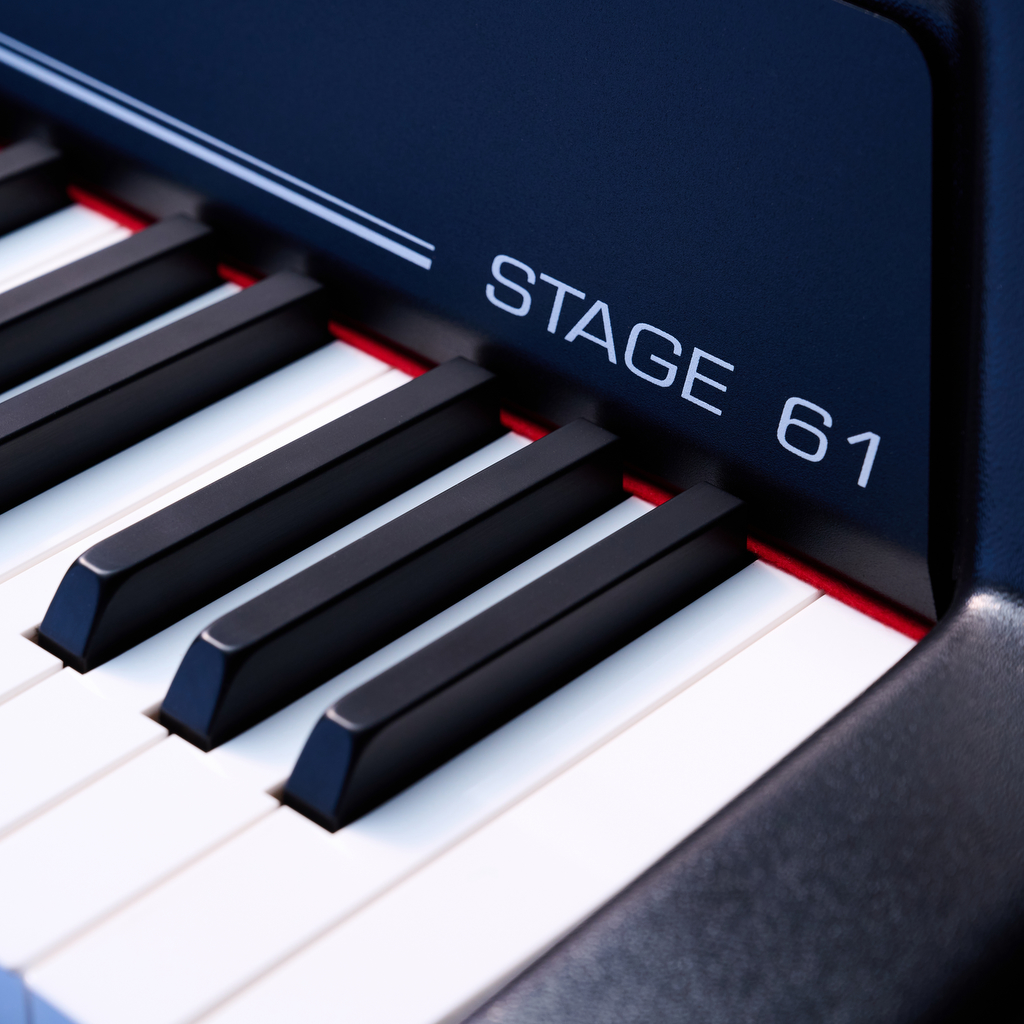
Verdict
Rhodes has been undeniably smart with the Stage 61; there is still a considerable market for the vintage Rhodes Stage models, in both the regular 73 note model and the smaller and lighter Stage 54. The Stage 61 slots right in between the two, in a format which is far more manoeuvrable, while providing keyboard players with that essential five-octave range, extending down to two octaves below middle C.
Of course, that is likely to be the dealbreaker as some keyboardists (and particularly pianists) will want the six octaves provided by the 73 note Mk8. It’s also worth noting that the Stage 61 is very close in price to a vintage Stage 54, which makes it a bit of a no brainer!
Being passive, we really like the concept of being able to use DAW-based effects or hardware pedals; it feels very traditional and old-school, and likely to appeal to Rhodes die-hards.
Apart from the classic ‘black’ model, Rhodes is also tempting us with a beautiful limited edition Stage 61, which has been designed by Axel Hartmann. Its striking good looks are reminiscent of racing car colour schemes from the ’60s and ’70s, and could undoubtedly become a classic in its own right.
The sign of a great instrument, at least for us, is how much you want to play it when we have it available to test. We literally spent every waking hour playing this instrument, which is testimony to its engaging nature, classic status, and incredibly worthy construction and design.
With the prospect of MIDI coming soon, it could become the ultimate controller keyboard for your studio, with a feel and touch which is every bit as good as a Steinway, with that beautiful Rhodes sound thrown in as part of the package. What a prospect? We’re sold!
Hands-on demos
Rhodes Piano
Alternatives
If the prospect of spending thousands on an electric piano is not for you, or you simply don’t have the space, Rhodes still has you covered. The V8 Pro is a software version of the classic instrument, with unparalleled levels of control at the note level. Classic effects are included as part of the package.
Read the full Rhodes V8 review
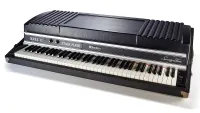
For perspective, the cost of a vintage Mk1 or Mk2 Rhodes Stage 73 varies tremendously from around £2,500 to £6,000. A typically good example will easily be in a similar price bracket to a Stage 61, but be aware of potential bargains! Old instruments often require replacement parts and servicing, and it could end up costing you far more as a consequence!
Nord has an incredibly good reputation for its sampled versions of Rhodes pianos. There are currently nine different iterations, in the Nord sample library, all of which can play from within the Piano 6. It’s a great keyboard, but you will miss the electro-mechanical nature of the Rhodes.
Read the full Nord Piano 6 review
Specifications
Price | £4,995+VAT & delivery Stand: £499+ VAT
|
Key features | Passive design – does not require power Kluge (Steinway) keybed Mono audio output (1/4” Jack) Passive volume control Tone control (Bass Boost) Sustain pedal included USB for MIDI (Retrofit Kit coming soon) |
Contact |
Roland Schmidt is a professional programmer, sound designer and producer, who has worked in collaboration with a number of successful production teams over the last 25 years. He can also be found delivering regular and key-note lectures on the use of hardware/software synthesisers and production, at various higher educational institutions throughout the UK
You must confirm your public display name before commenting
Please logout and then login again, you will then be prompted to enter your display name.
